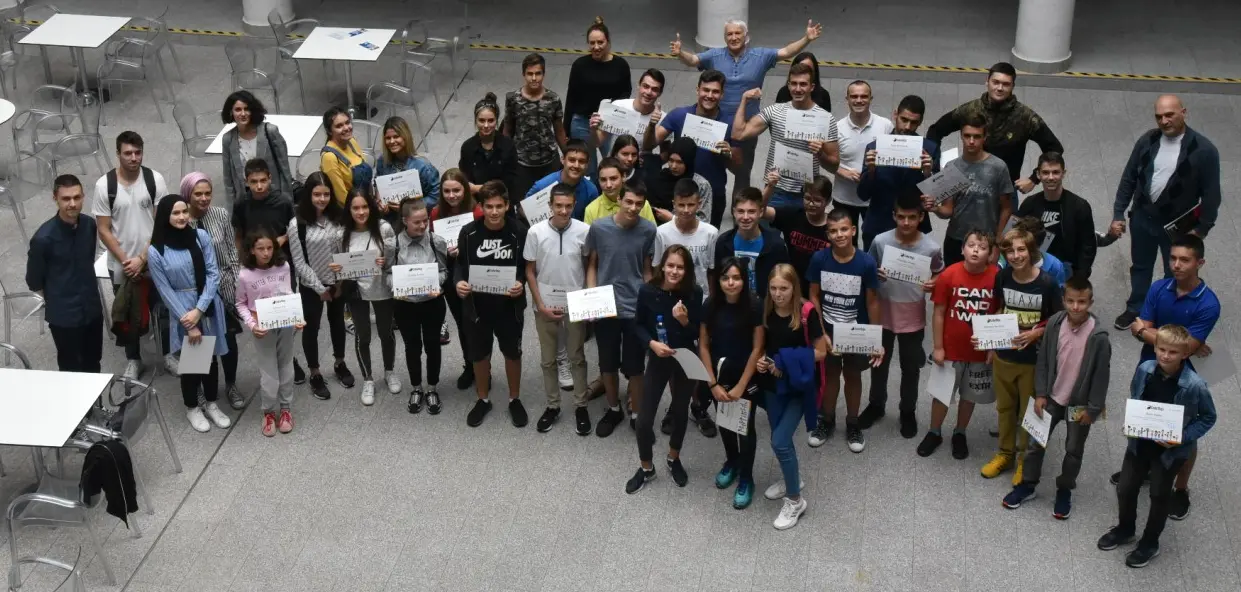Introduction
Student exchange programs have become increasingly popular in recent years, offering unique opportunities for students to broaden their horizons, gain international experience, and foster cultural understanding. One prominent program, Erasmus+, has made significant contributions to the educational landscape. In this blog, we will explore the benefits of student exchange programs, with a specific focus on Erasmus+, highlighting advantages for universities and students alike, while emphasizing the importance of diversity, cultural exchange, and enhanced creativity.
The Erasmus+ Programme is a European Union co-funded initiative designed to promote international cooperation and enhance mobility opportunities in the field of education, training, and youth. Currently, the program runs from 2021 to 2027 and is set to offer various opportunities for individuals and organizations.
More specifically Key Action 1 within the Erasmus+ Programme focuses on supporting student and staff mobility in the field of higher education. It aims to facilitate the exchange of students, teachers, and administrative staff among participating institutions in different European countries and programme partner countries. Through this initiative, students and staff members can experience studying, teaching, or working abroad, gaining valuable international experience, expanding their knowledge, and strengthening their intercultural competencies.
On one hand, the student mobility component allows higher education students to pursue part of their studies at partner institutions, either through short-term mobility periods or full academic semesters abroad, as well as through traineeships.
On the other hand, staff mobility allows teachers, lecturers, and administrative personnel from higher education institutions to engage in training, teaching, or job-shadowing opportunities abroad.
Beyond programmes like Erasmus+ universities can initiate their own International Exchange programmes, to enhance their international cooperation in various fields.
Universities can set up an exchange programme with countries not participating in the Erasmus+ Programme, through specific exchange agreements. An International Exchange Programme can give students the opportunity to spend a period of recognized study at several extra-European institutions. Students spending a study abroad period in such countries will benefit from the same conditions as Erasmus students, but will not be entitled to benefit from a mobility grant.
Benefits to Universities
International Exchange Programs foster the exchange of best practices, promote the transfer of knowledge, and encourage collaboration among institutions across Europe and partner countries. Moreover, they can benefit universities by contributing to:
- Enhanced Reputation: Participating universities gain a reputation for providing international exposure and educational excellence, attracting both local and international students.
- Academic Collaboration: Student exchange programs encourage collaboration between institutions, fostering partnerships and research opportunities that expand academic networks and knowledge sharing.
- Faculty and Staff Development: Faculty members and staff are also involved in exchange programs, benefiting from professional development, cross-cultural experiences, and exposure to new teaching methods.
Benefits to Students
Studying in a foreign country will open students’ minds to new perspectives and will nourish their cultural background. Amongst others, the main benefits to students are:
- Cultural Immersion: Student exchanges provide an immersive experience, allowing students to live and study in a foreign country, interact with local communities, and gain a deep understanding of different cultures, traditions, and perspectives.
- Language Proficiency: Students can improve their language skills, either through formal language courses or by living in an environment where the target language is spoken. Language proficiency enhances employability in an increasingly globalized world.
- Personal Growth: Experiencing a new environment, away from familiar surroundings, challenges students to become independent, adaptable, and open-minded. They develop resilience, self-confidence, and problem-solving skills.
- Global Networks: Students form lifelong friendships and professional networks with peers from diverse backgrounds, creating opportunities for future collaborations, cross-cultural understanding, and a global perspective.
Diversity and Cultural Exchange
Diversity and Cultural Exchange lie at the heart of international exchange programs, creating transformative experiences that bridge cultural gaps, promote empathy, and cultivate global citizenship. These programs empower participants and lead to:
- Preparing for Global Realities: Student exchange programs contribute to a more interconnected world by exposing students to diverse perspectives, beliefs, and ways of life. This exposure fosters empathy, tolerance, and respect for different cultures, preparing students for the global realities they will face in their personal and professional lives.
- Breaking Stereotypes: Through direct interactions with students from other countries, stereotypes and misconceptions are challenged and dismantled. This helps build cultural bridges and promotes intercultural understanding and harmony.
- Building a Multicultural Society: Embracing the richness of different backgrounds, students who participate in exchange programs return to their home countries as cultural ambassadors, sharing their experiences and promoting diversity and inclusivity within their communities, well prepared to build a more interconnected and harmonious world.
Enhanced Creativity through Idea and Cultural Exchange
Furthermore, exposing students to different cultures, perspectives, and educational systems stimulates creativity and innovation. By engaging with students from diverse backgrounds, ideas are shared, new perspectives emerge, and fresh approaches to problem-solving are developed.
In addition, the exchange of knowledge, skills, and cultural insights during the program enriches academic and personal growth, fostering creative thinking and encouraging students to think outside the box.
Global Academics Coalition
We at Global Academics Coalition have extensive experience in establishing and managing international exchange programs. We offer multimodal support to universities who would like to extend their footprint in such exchange programs. International Exchange Programmes, such as Erasmus+ and more, offer an invaluable chance and numerous benefits to universities, staff and students alike. These programs not only enhance the reputation of educational institutions but also provide students and staff with opportunities for personal and professional growth, cultural immersion, and the development of a global mindset. The exchange of ideas and cultures fosters creativity, and innovation, and prepares students to navigate the complexities of our interconnected world. By embracing diversity and promoting cultural exchange, we pave the way for a more inclusive and harmonious society.

